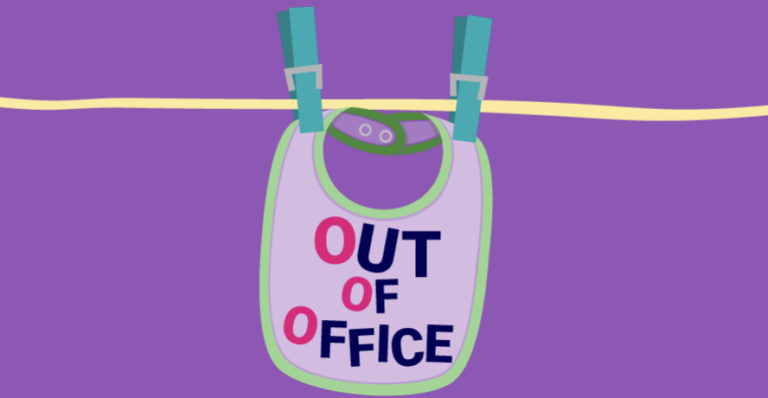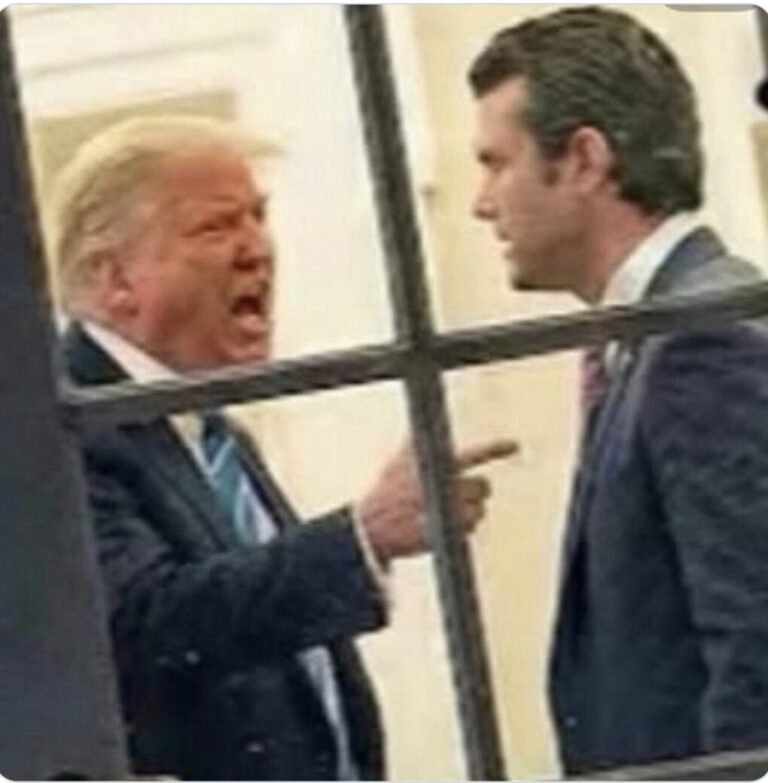What Is Co-Governance?
CO-GOVERNANCE presents New Zealanders with the most acute constitutional challenge since the Land Wars of the 1860s. Paradoxically, it would be a considerably less vexing problem if our ancestors truly had been the colonialist monsters of contemporary “progressive” folklore. Had the defeated Māori tribes been driven onto and confined within “reservations” – as happened to the Native Americans of Canada and the United States – instituting co-governance in the 2020s would be a breeze. Likewise, if the National Government of 1990-1999 had opted to create the New Zealand equivalent of “Bantustans” (self-governing ethnic enclaves) instead of instituting the internationally celebrated Treaty Settlement Process.
The central difficulty of the Treaty Settlement Process, as so many Māori nationalists have pointed out, is that it cannot offer more than a fraction of a cent on the dollar in terms of the current value of the Māori lands alienated under the laws of successive settler governments. To recover these from their present owners would require the outlay of scores-of-billions of dollars – a sum well beyond the contemplation of even the New Zealand State – let alone individual iwi.
And yet, as the Waitangi Tribunal’s recent finding in relation to the Ngapuhi rohe makes clear, the establishment of authentic rangatiratanga is virtually impossible without the land that gives chiefly authority its political heft. With all but a tiny fraction of New Zealand presently under the control of the New Zealand State, its Pakeha citizens, and a not insubstantial number of foreign owners, any discussion of co-governance is inevitably reduced to sterile arguments over Māori representation on city councils and other public bodies.
That’s why the true underlying agenda of those who preach the gospel of co-governance can only be the re-confiscation of the tribal territories lost since the Land Wars. This may sound far-fetched, but it is not impossible. As Māori discovered in the 1860s, and subsequent decades, all that is required to deprive a people of their lands, forests and fisheries is control of the legislative process, and the military force necessary to enforce the legislators’ will.
While Pakeha New Zealanders remained united in their resolve to construct a “Better Britain” on the lands confiscated and/or acquired (all too often by immoral means) from the country’s indigenous people, the notion of re-confiscation could be dismissed as an absurdity. But, if a substantial portion of the Pakeha population, most particularly those occupying the critical nodes of state power: the judiciary, the public service, academia, the state-owned news-media, and at least one of the two major political parties; were to become ideologically disposed to facilitate the re-confiscation of Māori resources, then the idea would begin to sound a whole lot less far-fetched.
To see how it might be accomplished one has only to study the manner in which the government of the newly-declared People’s Republic of China secured effective control of the privately-owned elements of the Chinese economy. The Communist Party of China, in sole control of the nation’s legislative machinery, and assured of a compliant judiciary and civil service, simply required private concerns to make over an ever-larger fraction of their shareholding to the Chinese state. With Boards of Directors dominated by government appointees, and no prospect of ever recovering control of their enterprises, the “owners” reluctantly sold their remaining shares to the state (receiving only a risible fraction of their true worth). The smart capitalists, reading the writing on the wall, sold-up early and fled to Taiwan, Hong Kong, Singapore and the United States. The one’s who hoped for the best, generally fared the worst.
With the news-media firmly under the Communist Party’s control, and the legal climate growing increasingly hostile to any citizen courageous enough to challenge the government’s policies, the transfer of private property into state hands was accomplished in less than a decade. It would have taken considerably longer if the People’s Liberation Army had not been standing behind the Communist Party’s legislators, civil servants and journalists. But, its willingness to apply military force to enforce the party’s will was never in doubt. In the words of the Chinese Communist leader, Mao Zedong: “All political power grows out of the barrel of a gun.”
How might a New Zealand parliament dominated by political parties favourably disposed towards co-governance set about transferring land held by private Pakeha/foreign interests to iwi authorities? One method would see all kinds of environmental and cultural obligations imposed on landowners – obligations that could not be fulfilled without rendering the enterprise unprofitable. Crown purchase (at a fraction of the land’s true worth) might follow, allowing the state to amass a vast amount of land. This process would undoubtedly be speeded-up by the consequent catastrophic collapse in agricultural land prices, which only constant and massive Crown purchases could stem.
With most of New Zealand land now in the possession of the Crown, returning it to tangata whenua would be the obvious next step towards meaningful co-governance. The Waitangi Tribunal, or some other, similar, body could be tasked with delimiting Aotearoa’s iwi boundaries as they existed at the time of the Treaty’s signing in February 1840. (Given that many of these boundaries would have been extended, reduced, or eliminated altogether as a consequence of the Musket Wars of the 1820s and 30s, deciding who should get what would likely entail a fair amount of ‘robust’ negotiation!)
The critical question to be settled in order for this process to succeed is whether a pro-co-governance parliament could rely upon the Police and the NZ Defence Force to enforce its legislative will. That there would be considerable resistance to the government’s plans may be taken as given, with such resistance escalating to terrorism and a full-scale armed rebellion highly likely. With the outbreak of deadly race-based violence, the loyalties of the Police and the NZDF would be tested to destruction.
Just as it required a full-scale military effort to destroy the first attempt at Māori self-government in the 1850s and 60s (an effort that divided Māori into supporters and opponents of the Crown) any second attempt to establish rangatiratanga, based on the confiscatory policies required to give it cultural and economic substance, could only be achieved militarily. That is to say, by fighting a racially-charged civil war.
Some might argue it is preferable to accept that the evolution of the nation of New Zealand has allowed Māori to enjoy the best of both worlds. Their iwi and hapu connections endure, very much alive beneath the overlaid institutions of the settler state. That they are able to take full advantage of those institutions is due to the historical oddity of the colonists who created that state not following the example of their white settler contemporaries and forcing the remnants of the indigenous tribes onto reservations – entities particularly suited to being “co-governed” under their conquerors. Instead, the Pakeha declared Māori to be full citizens, afforded them parliamentary representation, and laid the foundations of the bi-cultural society now emerging in Twenty-First Century Aotearoa-New Zealand.
If co-governance denotes a political system in which the indigenous peoples and the descendants of the settlers who came after them wrestle together with the legacies of colonisation – as free and equal citizens – then we already have it.







A better term than bi-cultural society would be bi-cultural nation/nation state/state/political society – we have a multi-cultural society.
The breaking up of the iwi collective land holdings ended self determination and the purpose of the Maori seats was to reduce the voting influence of Maori on their assimilation into the settlers political society.
The assertion that placing any environmental or cultural obligation (or fair pay industry awards) is about placing pressure on landowners to sell to Maori sounds like a right wing conspiracy theory. One so far fetched even they have not done so, yet.
I see New Zealanders still have a chip on their shoulder over Maori turangawaewae – how many generations is it going to take for that to be knocked off?
new+view: I agree with what you say here.
In my view, if people are told often enough that their lack of success is down to somebody else, they’ll come to believe it. And it becomes a self-fulfilling prophecy. It isn’t a new thing, either. I remember hearing it when I was working in the health sector, many years ago. So it’s been passed from generation to generation, at least in some families. There are always those who don’t buy that view, and just get on with making something of and for themselves and their offspring.
Thanks Chris for reviving this and keeping it in our consciousness. To me the issue is not about rights and wrongs (I cant see any absolutes in this situation) but I do think it is a huge Free Speech/Democracy issue. We are all talking about something that is being enacted by the judiciary and the government without NZers any the wiser.
I will be voting NZF but I have to stand by those saying Vote ACT and add Vote NZF but Act may be safer if Luxon is likely to get in. What is being perpetrated on NZ is heinous and NZers deserve to fully understand the issues and have their say. We are still a democracy in name at least.
I’ll be voting ACT again, as I did at the 2020 election. I’m hoping that enough of us vote that way to tip the electoral balance away from Labour/Greens.
Give it all back to the pre-human colonisation native fauna.
They were here first.
Humans go home.
Yup. The first colonists here were the Polynesians, the descendants of whom are modern-day Maori. Then came the Europeans. Had there been no colonisation, this country would still be the land of the birds, as it was when the first humans arrived.
What is co-governance?
It is the death of this government.
Your last paragraph is the best, while people are divided over this issue they ignore who really owns the earth & a coming reckoning that we are told will end with a time of trouble such as never was.
The worst part about it is that the majority that thinks they are right is going to be too late in finding out that they were wrong. The strange thing is that many think it is something to fear while the good news is that eternity is a free gift.
I think we have to ask the question: Why is the demagogy of Critical Social Justice suddenly the main ideology of Wall Street?
At first glance, there is no obvious benefit: the industrialists and financiers were already hoovering up an ever-greater share of GDP. Divisive racialist politics was unnecessary — even a hindrance to ‘globalisation’.
However, the general crisis of the world economic system was leading to greater and greater popular revolt.
The combined phenomena of Jeremy Corbyn, Bernie Sanders, Donald Trump and Brexit were the wake-up call for the ruling class: any resistance must be controlled early, and ultimately smashed.
The entire history of Critical Social Justice is that of diverting discontent toward extreme individualism and sectarianism.
The Poststructuralists, who would eventually control the ‘movement’, contributed the anti-scientific philosophy, which makes united collective action virtually impossible.
But earlier on, it was the Frankfurt School who contributed the ‘radical-sounding’ phraseology, which would con people into thinking this all had something to do with ‘progressive’ politics.
Recall in 1968 it was the Frankfurt School who basically wrecked the possibility of socialist construction in France with their wildly unrealistic tactics.
All the way through to the present, these academics were féted by the state, given funding and declared “safe” for the ruling establishment.
When Chris mentions state owned enterprises and economic regulation, this is what they are really afraid of. Which is why the establishment hate Michael Joseph Savage so much.
“Why is the demagogy of Critical Social Justice suddenly the main ideology of Wall Street?”
Post-occupy Wall St, CSJ is an ideal ideology to distract and divert activist energy away from economic and financial issues which tend to unite the majority and towards atomised identity issues which see the world as a series of dichotomies, cultural conflict theories (often contradicting each other).
The ideology lends itself to virtue theatrical. Victimhood replaces dignity as the mark of social status or clout and to be seen as morally good is more important than meaningful change. Critical social justice is a cuckoo in the progressive nest.
The result is social and political polarisation collectively and IMO a tendency towards narcissism and depression individually. As you indicate defuse any popular backlash before it starts. Divide, demoralise and rule.
This is not about ethnicity, Chris.
Things are getting really tough now. Do you really imagine the elites (of all stripes) give a stuff about any ethnic group or variety of social or historic justice?
But you leave out that He Pau Pau wants the state education system to indoctrinate the young for the next 17 years (200 anniversary) on the treaty and maori culture,laws and values at which point co governance will be complete,.This year the science curriculum is including the story that Maui hauled NZ out of the sea to explain continental movement.
Nicely done Chris. I wondered where you were going for a moment.